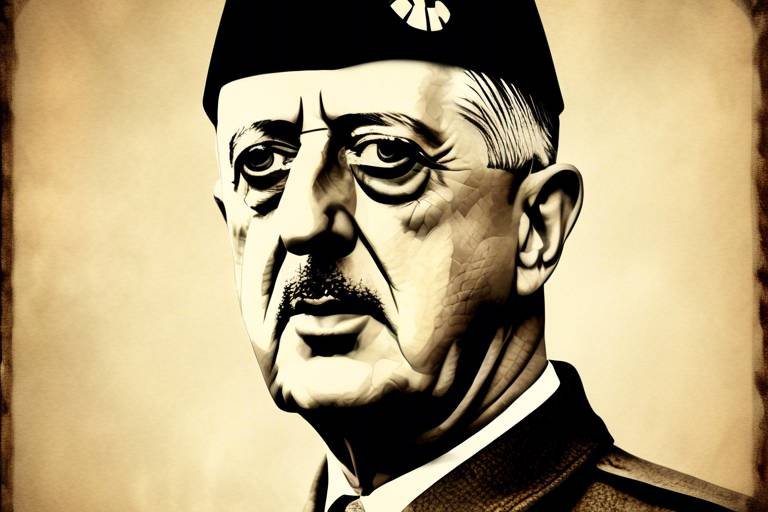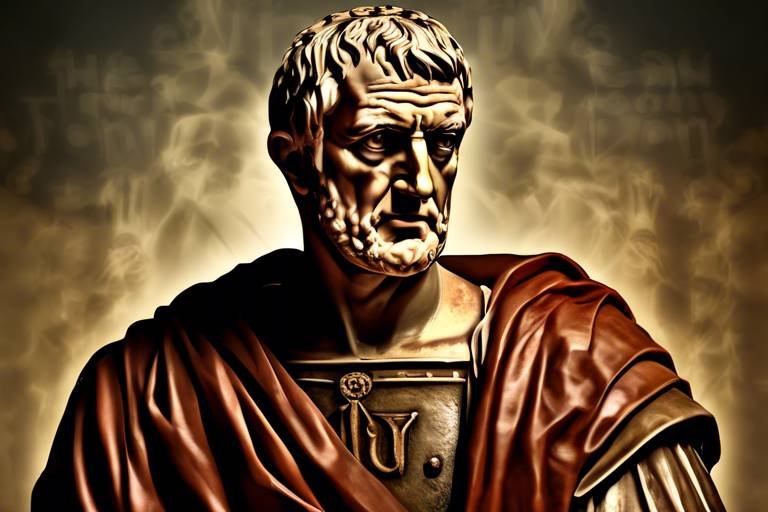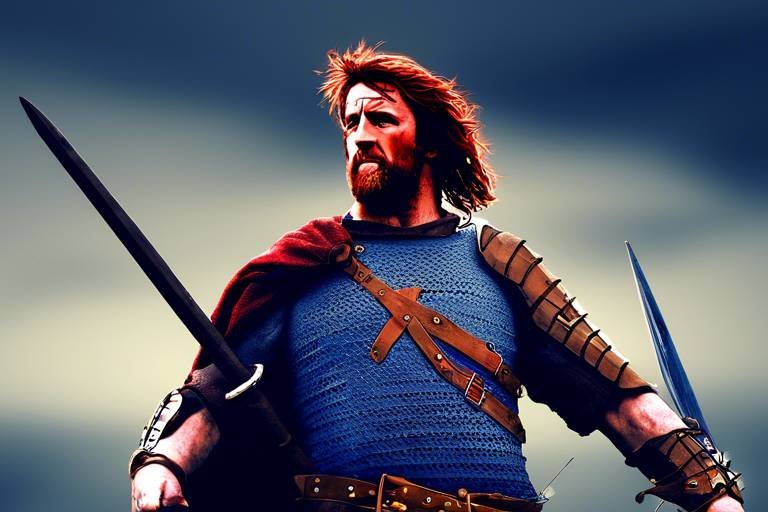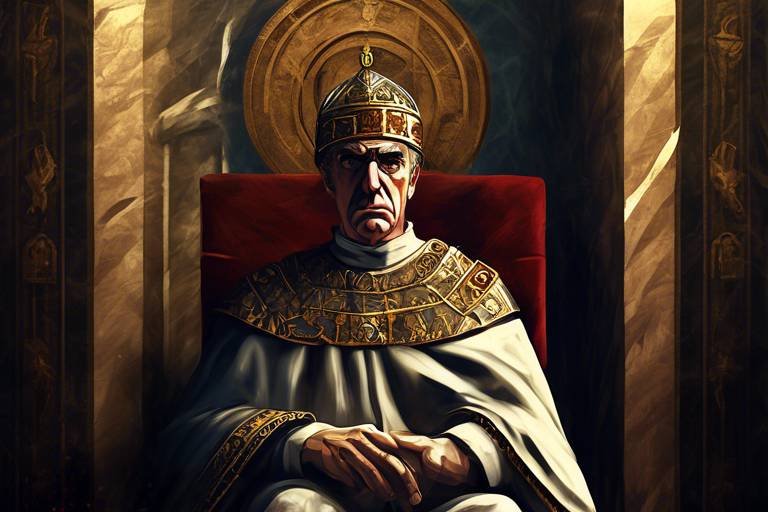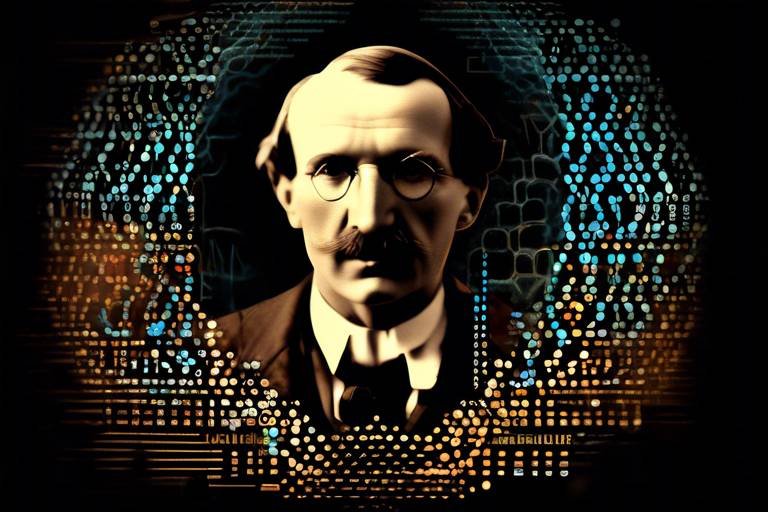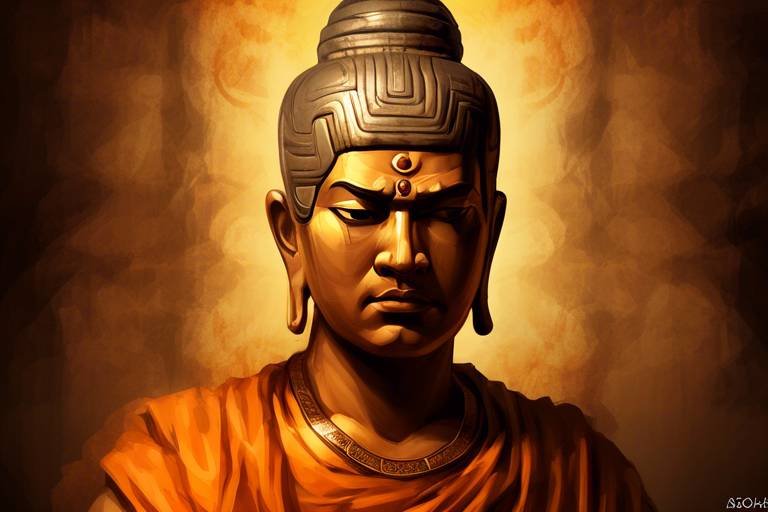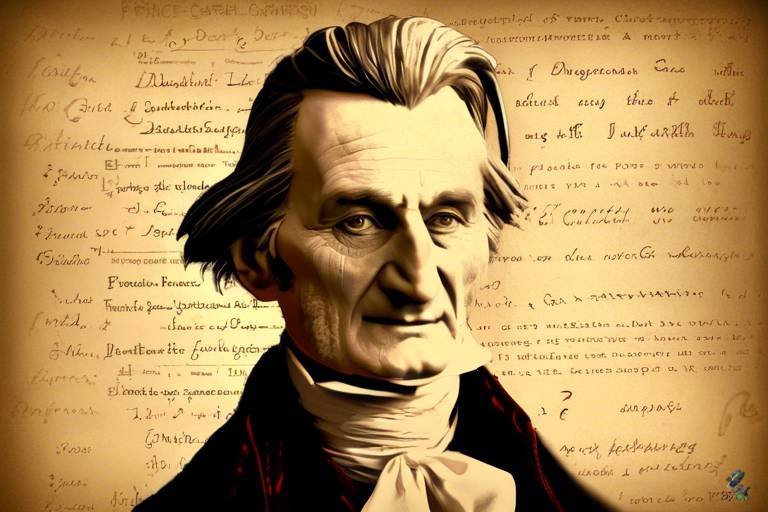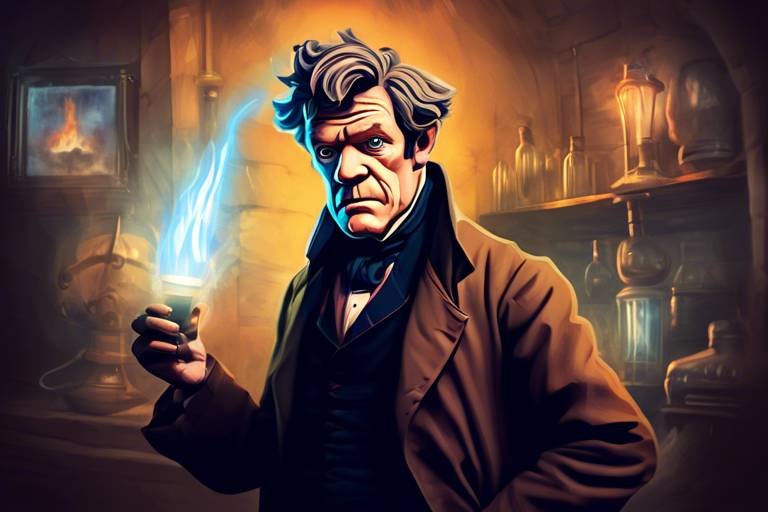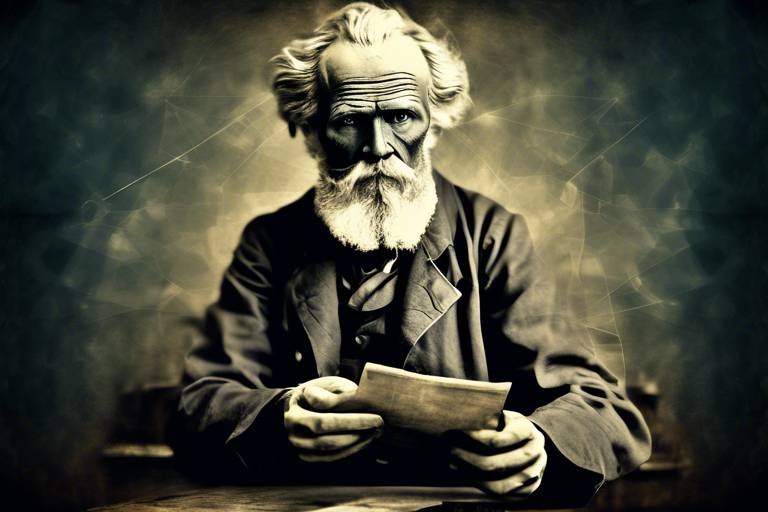Charles de Gaulle: The Leader of Free France
Charles de Gaulle, a towering figure in French history, emerged as the leader of Free France during one of the darkest periods of the nation's existence. His unwavering determination and visionary leadership played a pivotal role in shaping the course of World War II and post-war Europe. De Gaulle's legacy as a statesman, military leader, and advocate for national sovereignty continues to resonate today, underscoring his enduring impact on French politics and international relations.

Early Life and Military Career
Charles de Gaulle, the iconic leader of Free France, had a remarkable early life and military career that shaped his future path. Born in Lille, France, in 1890, de Gaulle grew up in a patriotic and intellectual family environment. His father instilled in him a sense of duty and honor, which influenced his later decisions and actions.
De Gaulle's education at the prestigious military academy of Saint-Cyr laid the foundation for his military career. Commissioned as a second lieutenant, he displayed exceptional leadership skills and strategic thinking during World War I. His experiences in the war, including being wounded and taken prisoner, forged his determination and resilience.
After the war, de Gaulle continued to excel in his military pursuits, advocating for the use of armored divisions and emphasizing the importance of mechanized warfare. His innovative ideas and forward-thinking approach set him apart from his peers and marked him as a rising star in the French military.
During the interwar period, de Gaulle's writings on military strategy and defense policy gained recognition, showcasing his intellectual depth and vision for the future of the French army. Despite facing setbacks and resistance from traditional military leaders, he remained steadfast in his beliefs and convictions.
De Gaulle's military career reached a turning point during World War II when he refused to accept the armistice with Nazi Germany and instead fled to London to continue the fight against the occupation. This bold decision demonstrated his unwavering commitment to French sovereignty and his belief in the ultimate triumph of freedom.

Formation of Free France
During the tumultuous years of World War II, Charles de Gaulle emerged as a beacon of hope for the French people in their darkest hour. The formation of Free France marked a pivotal moment in history, as de Gaulle defied the Nazi occupation and rallied his compatriots to resist tyranny and fight for freedom.
Establishing the French government-in-exile in London, de Gaulle became the voice of the resistance, broadcasting messages of defiance and unity to his fellow countrymen. His unwavering determination and charismatic leadership inspired a sense of national pride and solidarity among the French populace, galvanizing them to stand up against oppression.
De Gaulle's vision for Free France extended beyond mere military resistance; he sought to preserve the French spirit and uphold the values of liberty, equality, and fraternity. Through his strategic initiatives and diplomatic efforts, he garnered international support for the cause of a liberated France, forging alliances with key allies and positioning Free France as a legitimate government-in-waiting.
As the symbol of French resistance and liberation, de Gaulle embodied the spirit of resilience and fortitude that defined the Free French movement. His unwavering belief in the ultimate triumph of justice and democracy inspired a sense of hope and determination among his followers, fueling their resolve to overcome adversity and reclaim their nation's sovereignty.

Speeches and Broadcasts
Charles de Gaulle's speeches and broadcasts played a pivotal role in inspiring and mobilizing the French people during one of the darkest periods in their history. His powerful oratory skills and unwavering determination made him a beacon of hope for the resistance against Nazi occupation. From his famous call to arms broadcast from London in 1940, where he urged the French to join him in the fight against tyranny, to his radio addresses rallying support for Free France, de Gaulle's words resonated with a nation yearning for liberation.

Political Leadership
Charles de Gaulle's political leadership was characterized by his strong vision for France's future and his assertive style of governance. As the President of France, de Gaulle faced numerous challenges, including post-war reconstruction and the decolonization of French territories. His approach to leadership was marked by a sense of authority and determination, earning him both admirers and critics.
One of de Gaulle's key achievements in terms of political leadership was his role in shaping the French constitution and the establishment of the Fifth Republic. He emphasized the need for a strong executive branch to ensure stability and effective governance. De Gaulle's vision of national sovereignty and centralized power influenced the structure of the French government for years to come.
Furthermore, de Gaulle's foreign policy decisions reflected his commitment to asserting France's independence and global influence. He pursued an independent French nuclear deterrent, positioning France as a major player in international affairs. De Gaulle's diplomatic initiatives aimed to strengthen France's position on the world stage and promote its interests on a global scale.
Throughout his tenure, de Gaulle's political leadership style was often characterized as authoritative and uncompromising. He was known for his strong convictions and willingness to stand firm on his principles, even in the face of opposition. De Gaulle's legacy as a political leader continues to spark debate and analysis, with historians offering varying perspectives on his impact on French politics and society.

Constitutional Reforms
Charles de Gaulle's impact on France extended beyond his military and political endeavors to the very structure of the French state. His role in implementing constitutional reforms was pivotal in shaping the governance of the country. De Gaulle prioritized the establishment of the Fifth Republic, a system designed to provide stability and strong executive leadership in a post-war era marked by uncertainty and turmoil.
One of the key aspects of de Gaulle's constitutional reforms was his emphasis on national sovereignty and the centralization of power in the hands of the executive branch. By advocating for a powerful presidency, de Gaulle aimed to ensure that the French government could effectively navigate the challenges of a rapidly changing world while maintaining the country's independence and autonomy.
De Gaulle's vision for the constitution also included provisions for the protection of individual rights and freedoms, striking a balance between executive authority and democratic principles. His reforms sought to create a framework that could withstand the pressures of internal dissent and external threats, fostering a sense of unity and purpose among the French people.
Furthermore, de Gaulle's constitutional reforms laid the groundwork for France's role on the global stage, particularly in the realm of foreign policy. By consolidating executive power and asserting French sovereignty, de Gaulle aimed to position France as a key player in international affairs, capable of pursuing its own interests and objectives independently of external influences.
Overall, de Gaulle's constitutional reforms were instrumental in shaping the modern French state and defining the parameters of governance in the post-war era. His legacy as a constitutional architect endures, serving as a testament to his enduring influence on the political landscape of France.

Foreign Policy and Nuclear Ambitions
Charles de Gaulle's foreign policy and nuclear ambitions were central to his vision of France's role on the world stage. He sought to assert France's independence and influence in global affairs, particularly in the aftermath of World War II. One of de Gaulle's key initiatives was the development of an independent French nuclear deterrent, emphasizing France's status as a major power with the capability to defend itself. This nuclear ambition was not just about military strength but also about asserting France's sovereignty and autonomy in the face of superpower dominance.
Furthermore, de Gaulle pursued a policy of "grandeur" in French foreign relations, aiming to restore France's prestige and influence on the international scene. He sought to position France as a key player in global politics, advocating for a multipolar world order where France could act as a counterbalance to the superpowers of the Cold War era. De Gaulle's foreign policy aimed to assert French interests independently of the United States and NATO, promoting a more autonomous and assertive stance in international affairs.
Through his diplomatic efforts, de Gaulle also worked to strengthen France's ties with former colonies and other countries in the developing world. He sought to position France as a leader in decolonization efforts and promote cooperation among newly independent nations. De Gaulle's foreign policy agenda was driven by a desire to uphold French values and interests while also fostering a more balanced and equitable global order.
In pursuing his foreign policy and nuclear ambitions, Charles de Gaulle left a lasting impact on France's role in the world and influenced the country's strategic outlook for decades to come. His vision of an independent and assertive France continues to shape French foreign policy and national identity to this day.

Legacy and Influence
Charles de Gaulle's legacy and influence on French politics and society are profound and enduring. As the leader of Free France during World War II and later as the President of France, de Gaulle left an indelible mark on the nation's history. His unwavering commitment to national sovereignty and strong executive power shaped the course of French governance for decades to come.
One of de Gaulle's most significant contributions was the establishment of the Fifth Republic, with its emphasis on a powerful presidency and stable government. This constitutional reform aimed to provide France with a more robust and efficient political system, capable of navigating the challenges of the post-war era.
Furthermore, de Gaulle's foreign policy initiatives, such as his pursuit of an independent French nuclear deterrent, asserted France's status as a major global player. His vision of an independent and assertive France resonated with many French citizens and solidified his reputation as a strong and decisive leader.
De Gaulle's influence extended beyond the borders of France, impacting European integration and international relations. His efforts to promote French interests on the world stage helped elevate France's standing in global affairs and shape the country's role in shaping the future of Europe.
Despite his controversial decisions and policies, de Gaulle's legacy remains a subject of admiration and debate among historians and political analysts. His leadership style, political vision, and strategic decisions continue to spark discussions about his significance in modern France and the world at large.
In conclusion, Charles de Gaulle's legacy as a visionary leader, a staunch defender of national sovereignty, and a key figure in shaping post-war Europe ensures his place in history as one of France's most influential and iconic leaders.

Historiographical Debates
Historiographical debates surrounding Charles de Gaulle's legacy have sparked intense discussions among historians, with differing interpretations shaping his historical significance. Some scholars praise de Gaulle for his strong leadership during a tumultuous period in French history, crediting him with restoring France's global stature and guiding the country through challenging times. On the other hand, critics argue that de Gaulle's policies, particularly his approach to decolonization and his vision of a centralized French state, have been subject to scrutiny and debate.
One key point of contention revolves around de Gaulle's role in shaping the Fifth Republic and his emphasis on executive power. Supporters view his constitutional reforms as necessary for stabilizing France and providing strong leadership, while detractors raise concerns about the potential authoritarian implications of concentrating power in the hands of the president. This debate highlights the complex legacy of de Gaulle and the ongoing discussions about the balance between democracy and authority in French politics.
Furthermore, historians continue to analyze de Gaulle's foreign policy decisions, including his pursuit of an independent nuclear deterrent and his vision of an assertive French presence on the world stage. Some argue that de Gaulle's focus on national sovereignty and strategic autonomy laid the foundation for France's modern foreign policy stance, while others question the effectiveness and implications of his nuclear ambitions. These debates reflect differing perspectives on France's role in global affairs and the legacy of de Gaulle's diplomatic initiatives.
Frequently Asked Questions
- Who was Charles de Gaulle?
Charles de Gaulle was a prominent French military leader and statesman who played a crucial role in the resistance against Nazi occupation during World War II. He later became the President of France and was known for his strong leadership and vision for the country.
- What was the significance of Charles de Gaulle's speeches?
De Gaulle's speeches were instrumental in boosting morale and inspiring the French people to resist the German occupation. His broadcasts from London, including the famous call to arms in 1940, became symbols of hope and defiance for the French population.
- How did Charles de Gaulle impact French politics?
De Gaulle's influence on French politics was profound. He played a key role in shaping the French constitution and establishing the Fifth Republic, which emphasized a strong executive branch and national sovereignty. His foreign policy initiatives also aimed to assert France's independence and global influence.
- What is Charles de Gaulle's legacy?
Charles de Gaulle's legacy is enduring, with his impact felt not only in French politics but also in European integration and international relations. He is remembered as a symbol of French resistance and a visionary leader who left a lasting imprint on the country's history.

